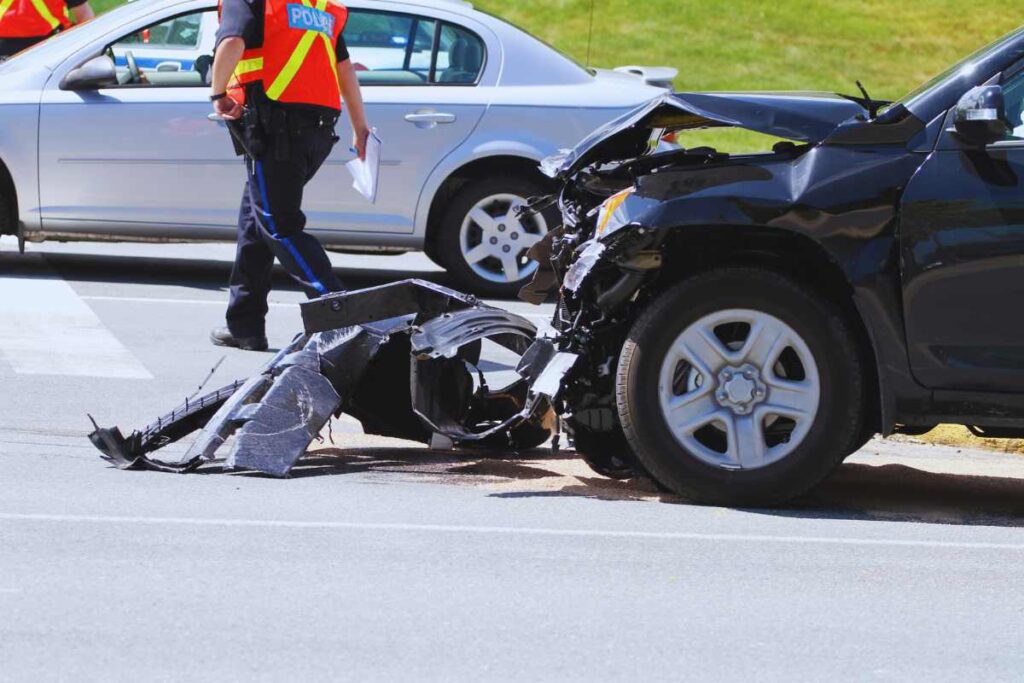Understanding Car Accident Lawsuit Timelines in San Diego

A car accident lawsuit refers to the legal process that injured victims can pursue when settlement talks with insurance companies fail. The full timeline depends on the severity of the injuries, legal strategy, and delays in the San Diego court system.
Wondering how long a car accident lawsuit really takes in San Diego? You’re not alone. Between hospitals billing you, insurers delaying payouts, and court backlogs dragging on, the timeline can feel endless. But with the right legal guidance, you can navigate this process with more clarity and less stress. In this guide, you’ll learn what affects your case’s duration, how San Diego-specific factors play a role, and what steps can speed things up. Whether you’re already in a legal battle or considering one, we’ll walk you through what to expect and how to stay protected.
Legal Process at a Glance: Milestone Summary
Before diving deeper, here’s a summarized breakdown of what most San Diego car accident victims can expect. This gives a high-level view of how long a case may take and where delays tend to show up.
Picture a typical scenario: a rear-end collision on the I-805 during rush hour. You’re hurt, confused, and the paperwork starts piling up. Here’s how the lawsuit journey typically unfolds:
- 12–24 months is the average timeframe for resolution.
- Insurance disputes over fault or lowball offers are a common reason for delay.
- Court backlog in San Diego can cause postponed trial dates.
- Medical recovery time affects how soon your attorney can calculate long-term damages.
- Legal representation early in the process often reduces unnecessary delays.
Having a lawyer handle these hurdles from the beginning can help keep your case on track and prevent common slowdowns.
Step-by-Step: San Diego Car Accident Lawsuit Phases
Understanding the stages helps clarify why car accident lawsuits can stretch out and where delays often occur. Let’s walk through each one with added context to show what’s really involved.

What are the major stages of a personal injury lawsuit?
Each case typically progresses through these steps:
- Medical treatment and documentation: Recovery lays the groundwork for your legal claim. Doctors must complete your prognosis so lawyers can estimate future costs. This phase impacts the overall valuation of your claim.
- Insurance claim and investigation: Your attorney submits documentation. The insurer reviews liability and medical records, often pushing for reduced payouts.
- Filing a lawsuit (if settlement stalls): When talks fail, your legal team files a complaint with the San Diego Superior Court.
- Discovery and depositions: Both sides exchange evidence, interview witnesses, and depose parties under oath. This can be time-consuming if expert testimony is needed.
- Settlement negotiations: Lawyers push for resolution before trial. Many cases settle here.
- Trial or resolution: If settlement fails, the case heads to trial, which may be scheduled months later due to San Diego’s overbooked civil docket.
These stages often overlap or get paused depending on injury recovery or dispute complexity.
How long does each phase usually take in San Diego?
Timeframes vary but generally fall within these ranges:
- Medical recovery and documentation: 1–6 months or more, depending on the injury.
- Insurance review and case preparation: 1–3 months.
- Discovery and legal filings: Around 3–6 months.
- Settlement discussions: A few weeks to several months depending on negotiation complexity.
- Trial phase: 1–2 years after filing, depending on court scheduling.
Working with a San Diego personal injury lawyer who understands local delays can prevent missteps and keep your case moving.
What Makes San Diego’s Court System Unique?
Why does the timeline in San Diego often stretch longer than expected? Here’s what stands out about the local court environment:
- A limited number of civil courtrooms means fewer judges can hear cases.
- Fewer judges are assigned specifically to personal injury cases.
- Pandemic-related backlog is still impacting scheduling and availability.
If trial feels too far off, attorneys may recommend mediation or arbitration to help victims recover faster while avoiding prolonged delays.
Factors That Impact the Timeline of Your Case

Every case is different, but these common variables either speed up or slow down your lawsuit in San Diego.
Does injury severity influence the lawsuit timeline?
Yes, significantly.
More severe injuries require longer treatment, which delays legal action. Attorneys often wait for maximum medical improvement (MMI) before calculating total damages. This ensures you’re compensated for future surgeries, therapies, or disability related care but it adds time up front.
What if fault is unclear or disputed?
It adds weeks to months of investigation.
Police reports may not be enough. Your attorney might need surveillance footage, traffic light data, or even accident reconstruction experts. This is common in chain-reaction crashes or intersection collisions.
How do insurance companies contribute to delays?
Strategic stalling is common.
Adjusters may ask for repeated documentation or offer low settlements hoping you’ll accept out of frustration. A seasoned car accident lawyer in San Diego can pressure them with evidence-backed responses.
What if multiple parties are involved?
Liability negotiations become more complex.
Let’s say your accident involved a rideshare driver and a city owned vehicle. Now you’re dealing with government liability rules and corporate insurers. A dedicated rideshare accident attorney can streamline this.
Can You Speed Up a Car Accident Case in San Diego?
Yes ,but only to a degree. Legal cases move slowly by nature, but strategic preparation can cut months off the process. Here’s how an attorney can help expedite it.
What can a personal injury attorney do to move things faster?
They can:
- Submit a demand package quickly with medical records, bills, and evidence.
- Maintain consistent pressure on the insurance adjuster to avoid radio silence.
- File motions promptly and avoid procedural delays.
- Recommend a fair settlement offer when it truly serves your long-term needs.
At Mova Law Group, our proactive case management helps clients avoid common bottlenecks and recover faster.
Is early settlement a good idea?
Not always.
Settling early may seem tempting, especially if you’re under financial pressure. But without knowing your full recovery needs, you risk accepting less than you deserve. If your injuries involve long-term consequences, speak to a catastrophic injury lawyer or medical expert first.
What type of documentation helps resolve a claim faster?
- Accident reports strengthen your claim’s credibility.
- Complete medical records help insurers assess long-term impact.
- Wage and employment documentation proves loss of income.
Having these organized allows your lawyer to present a persuasive case early. Learn more about filing a strong accident claim in San Diego.
What If Your Lawsuit Drags On?
Waiting can feel like the hardest part especially with bills stacking up. Here’s how to stay afloat while your case progresses.
Can I keep getting medical treatment?
Yes.
Many clinics in San Diego treat injury victims on medical liens, meaning you won’t pay until your case settles. Your attorney can set this up with providers who understand lien-based care.
Will collections agencies come after me?
Generally no, if your lawyer sends a letter of protection to hospitals and debt collectors. This signals that payment will be handled after the lawsuit resolves.
Are pre-settlement loans an option?
Yes, but use them carefully.
While helpful in urgent situations, legal funding companies often charge high interest. Always ask your lawyer if it’s the right move.
Legal Timelines in San Diego: Real Questions, Straight Answers
These common questions come directly from local search behavior, forums, and client calls. Think of it as a legal cheat sheet.
When is the right time to file a lawsuit?
Typically 6–12 months after the crash.
This gives you time to heal and document injuries without rushing legal deadlines.
What’s the filing deadline?
Two years from the accident date.
California Civil Code §335.1 sets the statute of limitations. If you miss it, you lose the right to pursue damages.
Why does the process take so long?
Because each stage requires coordination.
Your injuries, insurer response, and court calendar all affect timing. Even one delay can push the entire case back by months.
How do I know my case is still progressing?
Regular updates from your lawyer are essential.
If weeks pass without communication, ask for a timeline check-in. Transparency keeps you informed and reduces stress.
What to Do Next If You’ve Been in a Crash
It’s not just about how long the process takes it’s about what you do during that time. With the right guidance, you can avoid costly delays and stay informed every step of the way.
At Mova Law Group, we advocate for San Diego accident victims throughout the entire lawsuit process. From building a rock-solid case to guiding you through court delays, we help you secure the compensation you need.
Trusted Legal References
- California Civil Code §335.1 – Statute of Limitations
- San Diego Superior Court Civil Backlog Reports
- Nolo: California Car Accident Lawsuit Timeline
- FindLaw: Step-by-step legal process
Ready to Start? Contact Us Today!
(858) 333-4999